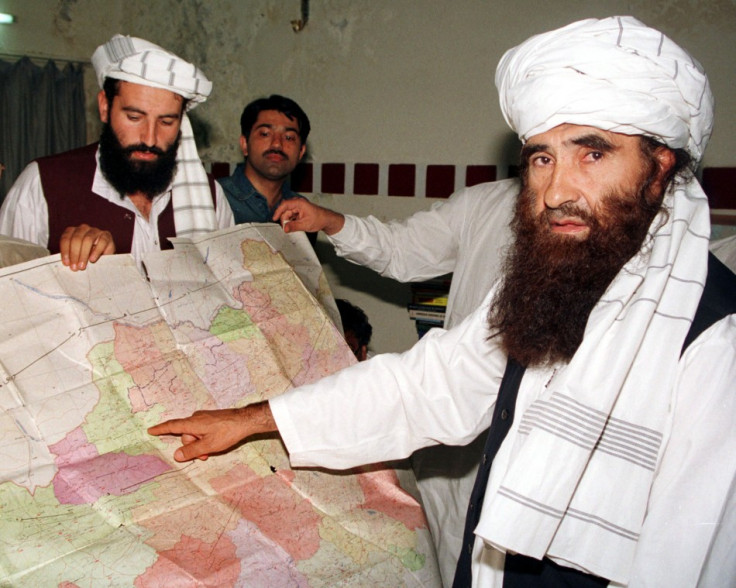Afghanistan, The U.S. and Pakistan: Where Will the War of Words Lead?

Pakistan is still hitting back at allegations from Afghan officials that its intelligence agency masterminded the assassination of Kabul's chief peace negotiator with the Taliban, threatening the region's stability and pointing the finger at their neighbour rather than looking at the lack of efficiency of domestic forces.
As accusations from both the U.S. and the Afghan authorities are angering Pakistan, tensions between the country risks creating more regional instability as alliances could shifts.
An investigative delegation recently set up by President Hamid Karzai has said it had obtained evidence and a confession by a man involved in Burhanuddin Rabbani's killing on September 20.
The man, they said, sustain the bomber was Pakistani and the assassination had been plotted in Pakistan.
However hitting back at the accusations, the Pakistani authorities instead questioned the Afghan's authorities' ability to pre-empt the Taliban's attacks and fight off the movement.
"Instead of making such irresponsible statements, those in positions of authority in Kabul should seriously deliberate as to why all those Afghans who are favourably disposed toward peace and toward Pakistan are systematically being removed from the scene and killed," Pakistan's foreign ministry said in a statement.
"There is a need to take stock of the direction taken by Afghan Intelligence and security agencies."
Rabbani's killing came just as the U.S. and Afghan authorities had renewed efforts to forge dialogue with the Taliban as despite foreign troop's involvement, insurgency against the government and those considered to be on its side has seen an increase.
Meanwhile, anti-Pakistani feeling in Afghanistan is also rising, and hundreds of demonstrators took to the streets of Kabul on Sunday to condemn recent shelling of border areas by Pakistan's army and accuse the country's Inter-Services Intelligence (ISI) spy agency of involvement in Rabbani's killing.
Also, the Peace Council, which was previously headed by Rabbani is now calling for negotiations to be held with Pakistan rather than with the Taliban, implying Islamabad is directly involved in supporting some militants from behind the scenes.
Afghan leaders are following on the U.S. suit in becoming increasingly suspicious of Pakistan's ability to help them fight militants group, especially the Haqqani network.
While some analysts have warned Pakistan might use the group as a strategic tool to counterweight he influence of its main regional rival India in Afghanistan, ISI officials have denied ever supporting the Haqqani network.
The Afghan accusations came after a the top U.S. military officer, admiral Mike Mullen, had accused Pakistani intelligence of supporting an attack on the U.S. embassy in Kabul on September 13, which was allegedly carried out by the Haqqani group.
Pakistan retorted angrily, which later on led to the White house trying to distance itself from the remarks but it seems unlikely relations could now return to the level of cooperation seen when the two countries started their alliance to fight against the war on terror.
Pakistan says it has sacrificed more than any other country that joined the U.S.-led global campaign against militancy after the September 11, 2001, attacks on the United States, losing thousands of soldiers and security forces.
Meanwhile, adding to the confusion and despite accusations, leaders from the Haqqani group have kept on denying being responsible for killing Rabbani or having links with the Pakistani ISI.
Siraj Haqqani a leader for the group also told the BBC that the U.S. had been in touch to try to persuade him to enter talks with the Afghan government.
The Haqqanis "have been contacted and are being contacted by intelligence agencies of many Islamic and non-Islamic countries, including the US, asking us to leave the sacred jihad and take an important part in the current government", the BBC quoted him as saying.
With the Haqqani regime intensely denying any involvement or support by the Pakistani authorities the war of words between the U.S., Afghanistan and Pakistan is set to continue and risks exchanges risks becoming even more tensed.
The Afghan authorities it seems have followed the U.S. in turning the heat on Pakistan and becoming more straightforward and direct on accusing the authorities of supporting militants' network.
While Washington has been very vocal of its suspicions towards Pakistan, the Afghan authorities have also a lot of questions to answer as security in the country has been more than volatile and government forces also accused of corruption and having close ties with militants.
With the war of words between Pakistan and Afghanistan set to increase, the Karzai government has failed to realise that once foreign troops will leave the country it will need Pakistan's help more than ever.
© Copyright IBTimes 2024. All rights reserved.








